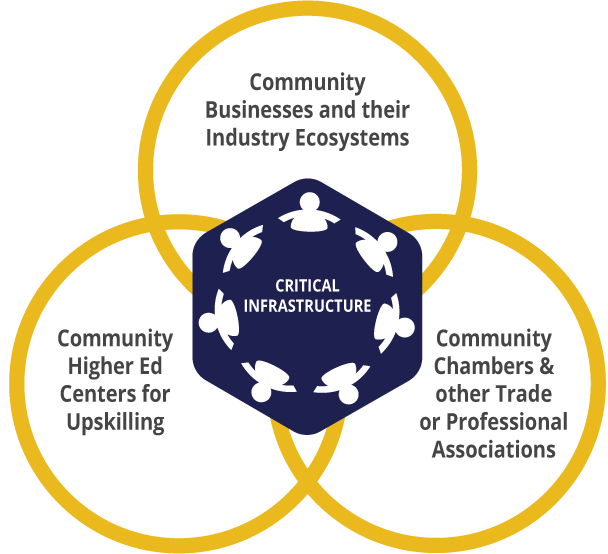- Nominates and selects top flight higher ed students.
- Trains and certifies Navigators in professional skills.
- Guides Navigators to analyze businesses on collaboration best practices.
- Supports Navigators to work directly with community business leaders.
Community Navigators earn certifications which demonstrate that the Community Navigator created measurable value for a small business by applying that particular skill. Beyond any technical skills, all of these microcredentials rely on how to facilitate progress with a small business leader in the context of Cybersecurity & AI ethics.


